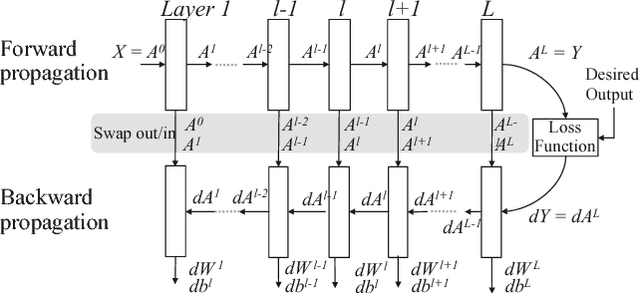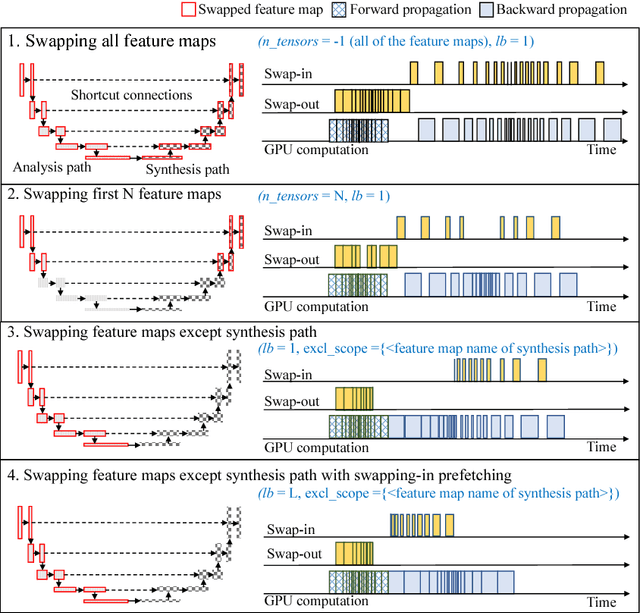Fast and Accurate 3D Medical Image Segmentation with Data-swapping Method
Paper and Code
Dec 19, 2018



Deep neural network models used for medical image segmentation are large because they are trained with high-resolution three-dimensional (3D) images. Graphics processing units (GPUs) are widely used to accelerate the trainings. However, the memory on a GPU is not large enough to train the models. A popular approach to tackling this problem is patch-based method, which divides a large image into small patches and trains the models with these small patches. However, this method would degrade the segmentation quality if a target object spans multiple patches. In this paper, we propose a novel approach for 3D medical image segmentation that utilizes the data-swapping, which swaps out intermediate data from GPU memory to CPU memory to enlarge the effective GPU memory size, for training high-resolution 3D medical images without patching. We carefully tuned parameters in the data-swapping method to obtain the best training performance for 3D U-Net, a widely used deep neural network model for medical image segmentation. We applied our tuning to train 3D U-Net with full-size images of 192 x 192 x 192 voxels in brain tumor dataset. As a result, communication overhead, which is the most important issue, was reduced by 17.1%. Compared with the patch-based method for patches of 128 x 128 x 128 voxels, our training for full-size images achieved improvement on the mean Dice score by 4.48% and 5.32 % for detecting whole tumor sub-region and tumor core sub-region, respectively. The total training time was reduced from 164 hours to 47 hours, resulting in 3.53 times of acceleration.
 Add to Chrome
Add to Chrome Add to Firefox
Add to Firefox Add to Edge
Add to Edge